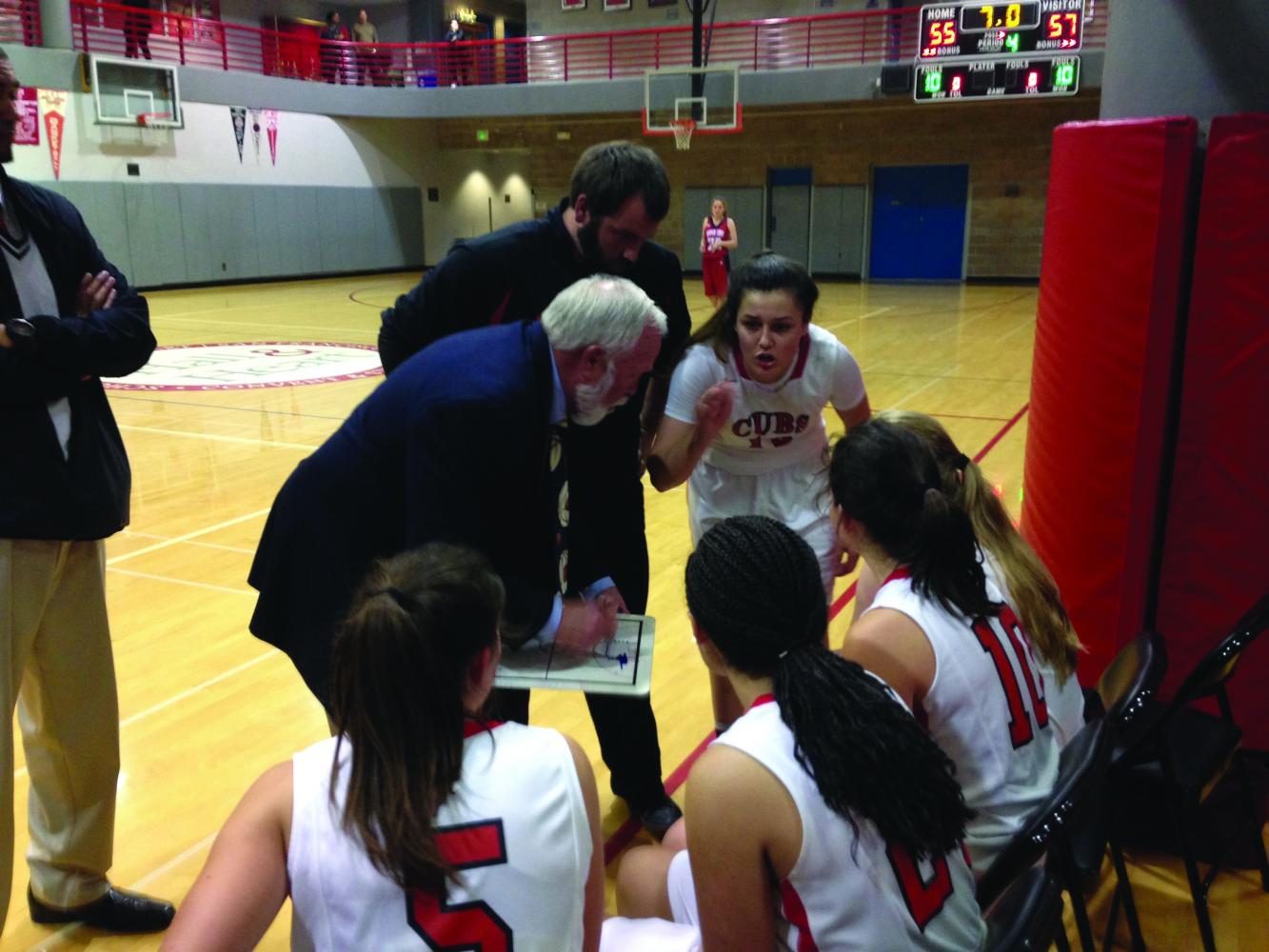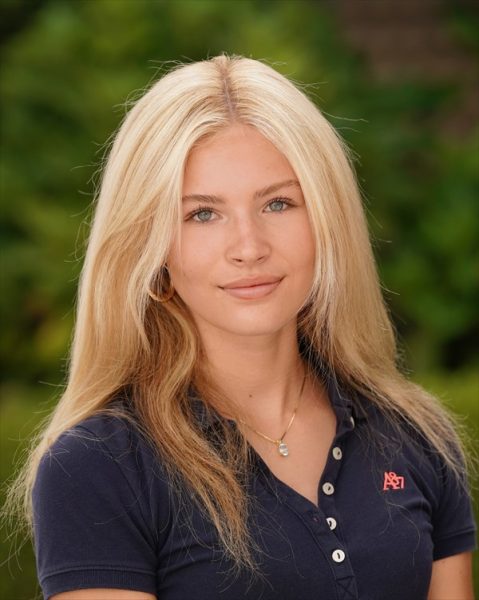Leveling the playing field
Women in sports remain underrepresented.
Captain Alyssa Alvarez offers advice to her basketball teammates during the first round of the North Coast Section championship bracket. The team had an undefeated league season but lost the first round of NCS to the Upper Lake Cougars, 56-58.
March 9, 2017
The demoralizing locker room insult “You run like a girl” sums up the stereotypes and misogyny professional female athletes continue to battle, as they struggle for competitive pay, publicity and benefits to their male counterparts.
Although Title IX, legislation giving women equal access playing sports in every educational program that receives federal funding, the law’s goal has not gone the distance in professional sports.
Men’s sporting events often overshadow women’s as men’s basketball airs during ESPN’s primetime, while Women’s National Basketball Association coverage broadcasts on lesser known ESPN2 and ESPN3.
“The NBA is on more and easier to find, and with friends the games area an easier topic to talk about,” sophomore Megan Mullins, who plays junior varsity basketball, said. “Not a lot of people know much about the WNBA.”
While women have their own national league, a prominent pay gap between the two sex-divided leagues exists with female basketball players earning a maximum of $101,000, compared to a male player earning $23.5 million in 2014.
The effects of underrepresentation trickle down to high school level as junior Isabel Elgin decided to shop at Sports Basement for her position as a guard on the varsity basketball team, but struggled to find basketball shorts and shoes in the athletic store’s women’s department.
“They didn’t have any women’s shoes,” Elgin said. “I ended up buying specially-made men’s shoes because the men’s department didn’t have my size either.”
Elgin says she wears the athletic gear everyday for practice and wants to like what she wears.
“It’s frustrating when you have to spend hours in a store trying to find something your size because it’s made for men,” Elgin said.
Although the search for adequate clothing can be a notable issue for female athletes, the pursuit for prominent media exposure may be just as challenging.
Women do not have a national football league, despite a 200 percent increase in young women playing the sport across seven years, according to a survey distributed by the National Federation of State High School Associations.
“The guys were really open about a girl joining the team,” Claire Dworsky, a St. Ignatius College Preparatory junior who is the first young woman to play for her school’s varsity football team, said. “I had to work extra hard just to be on the same level as the guys, so my working hard earned their respect.”
Dworsky says she does not feel she gets any special attention despite being the first girl on the team.
“At my first game they just announced my last name,” Dworsky said. “The announcer didn’t celebrate I was a girl or didn’t pay special attention to it — I was just the kicker who got the job done.”
Although Dworsky plays on a boys team, there were over 400 girls 11-player football teams in the United States in 2015, according to NFSHSA.
Over 40,000 girls played high school basketball during the 2015-2016 season, making it the third most played high school girls sport.
“Convent is always looking for more people to be on the basketball team,” Elgin said. “Many years we’ve had small teams whereas, at Stuart Hall, it’s one of the sports that has the heaviest cuts.”
The girls’ team had an exceptional season — not losing a single league game — but game attendance was low including into the postseason, according to Elgin.
“It’s disheartening, you want to be encouraged by your peers,” Elgin said. “You want people to show up and be proud of you for your work during a game and when that doesn’t happen for your game, but you see them at a boys game, it just makes you feel less appreciated.”
Junior Cali Debevoise went to six Stuart Hall High School games because her boyfriend plays for the team, although she only went to one girls game.
“My friends ask me to go with them to the boys game,” Debevoise said. “Less people went to the girls’ game, and I really just didn’t want to go alone.”
While some sports attendees may choose to attend a game when others decide to as well, others say sex should not be a focused aspect of athleticism.
“I feel proud of being a woman in a male-dominated sport,” Elgin said. “I’m playing it and I’m decent at it.”










